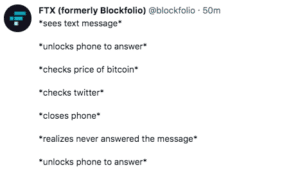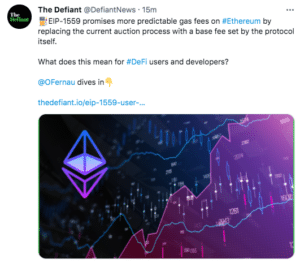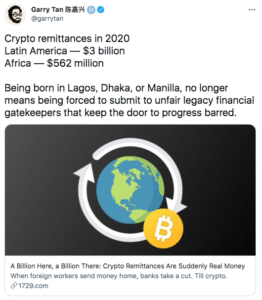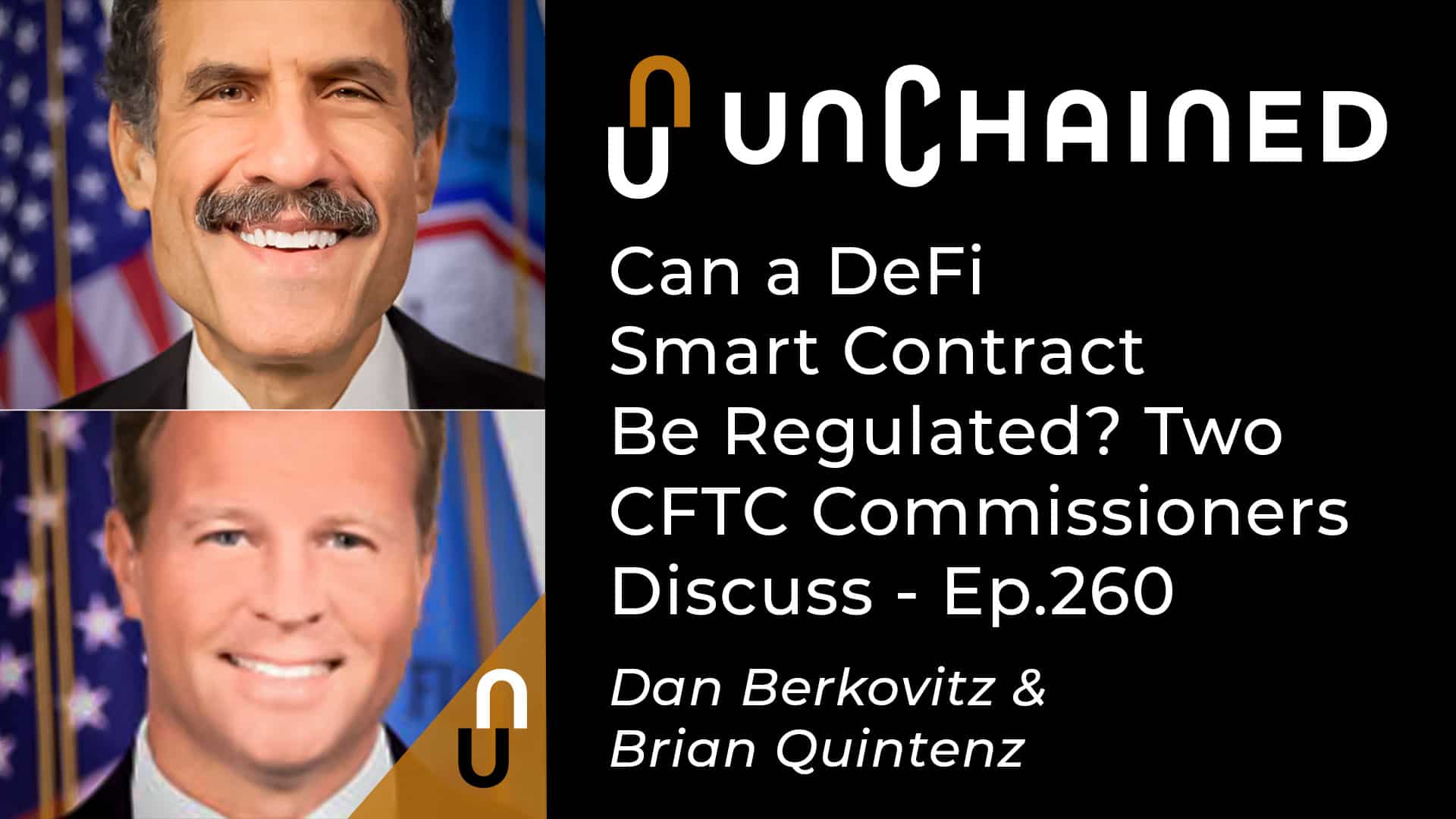August 5, 2021 / Unchained Daily / Laura Shin
Daily Bits ✍️✍️✍️
-
Nasdaq paused trading for $HOOD three times yesterday morning due to volatility.
-
Fidelity purchased a 7.4% stake in Marathon Digital Holdings across four of its funds.
-
Popsicle Finance, a DeFi protocol, was hacked for $20M+.
-
NFT marketplace MakersPlace secured $30M in a Series A.
-
Crypto.com (disclosure: a sponsor of my shows) hired Henrik Johansson, the former head of global user growth at Spotify.
-
Google is now allowing crypto ads in the US without restrictions.
-
Community members of Ember Sword, an unreleased play-to-earn video game, have pledged $203M+ to purchase virtual plots of land in the online world.
-
A CryptoPunk valued above $69,000 was mistakenly sold for less than a cent.
-
Victory Capital applied for a crypto ETF with the SEC.
- Burberry, a luxury fashion brand, launched its first NFT collection in partnership with Mythical Games.
What Do You Meme?
What’s Poppin’?
Yesterday, members of the Senate introduced an amendment to the $1T infrastructure bill attempting to redefine the controversial language concerning cryptocurrency “brokers” found in the original version — which proposes to generate $28B in revenue through stricter crypto taxation.
Senators Ron Wyden, Pat Toomey, and Cynthia Lummis reached across party lines to propose a change that would explicitly exclude validators, hardware and software wallets, and protocol devs from being treated as brokers.
Under the original language, miners, validators, and other crypto actors, as brokers, would be legally required to file 1099 forms and report crypto transactions above $10,000 (Forbes) to the Internal Revenue Service.
On Twitter, Toomey explained the motive behind the amendment, writing, “By clarifying the definition of broker, our amendment will ensure non-financial intermediaries like miners, network validators, and other service providers are not subject to the reporting requirements specified in the bipartisan infrastructure package.”
The crypto industry was quick to get behind the Senatorial movement, with Blockchain Association and Coin Center, in conjunction with Coinbase, Ribbit Capital, and Square, releasing a joint statement supporting the amendment.
Despite the quick rally from Wyden, Lummis, and Toomey, along with the crypto community at large, the amendment still needs to gain support from 60 senators. Senator Rob Portman, it appears, will not be voting for the amendment, as he believes the original language should not affect most non-broker actors. Said Portman, “the legislation does not impose new reporting requirements on software developers, crypto miners, node operators or other non-brokers.”
It remains to be seen how the rest of the Senate feels, though we will most likely find out soon, as the infrastructure bill is expected to be voted on by the end of the week, according to Decrypt.
Recommended Reads
- The Defiant on what EIP 1559 means for DeFi:
- The 1729 blog on crypto remittances:
- Here’s a great list featuring the best follows on CryptoLaw Twitter:
On The Pod…
Can a DeFi Smart Contract Be Regulated? Two CFTC Commissioners Discuss
CFTC Commissioners Dan Berkovitz and Brian Quintenz discuss the difficulties of regulating crypto derivatives and DeFi. Show highlights:
- their backgrounds
- what the CFTC’s duties are regarding crypto
- how the CFTC’s jurisdiction has evolved over the years
- why Commissioner Quintenz believes SEC Commissioner Hester Peirce’s safe harbor proposal is “brilliant”
- what relationship the CFTC and SEC have when making decisions on crypto assets
- why the commissioners believe CFTC’s complaints regarding BitMEX are “well-founded”
- why formal regulation for crypto derivatives is unlikely to be produced by the CFTC
- why leveraged derivatives products are a “concern” to the CFTC
- what makes regulating DeFi platforms so difficult
- when it comes to DeFi, who is a natural entity for the CFTC to regulate, if any
- whether the CFTC would ever go after DeFi “market participants,” who the CFTC also regulates
- why smart contracts involving futures could be illegal
- how the possibility that smart contracts could be illegal squares with the view that software development is a form of free speech
- whether the CFTC could prosecute developers who write smart contracts
- whether the CFTC needs to re-write its laws in light of DeFi innovation
- why Commissioner Berkovitz thinks the DeFi “winners” will be protocols that focus on meeting regulatory requirements
- why the CFTC approved Bitcoin futures in 2017 while the SEC has not yet approved a Bitcoin ETF
- how a Bitcoin ETF could solve Bitcoin’s accounting issue, which currently gives companies no upside for adding BTC to its balance sheet
Book Update
My book, The Cryptopians: Idealism, Greed, Lies, and the Making of the First Big Cryptocurrency Craze, is now available for pre-order now.
The book, which is all about Ethereum and the 2017 ICO mania, comes out Jan. 18. Pre-order it today!
You can purchase it here: http://bit.ly/cryptopians








